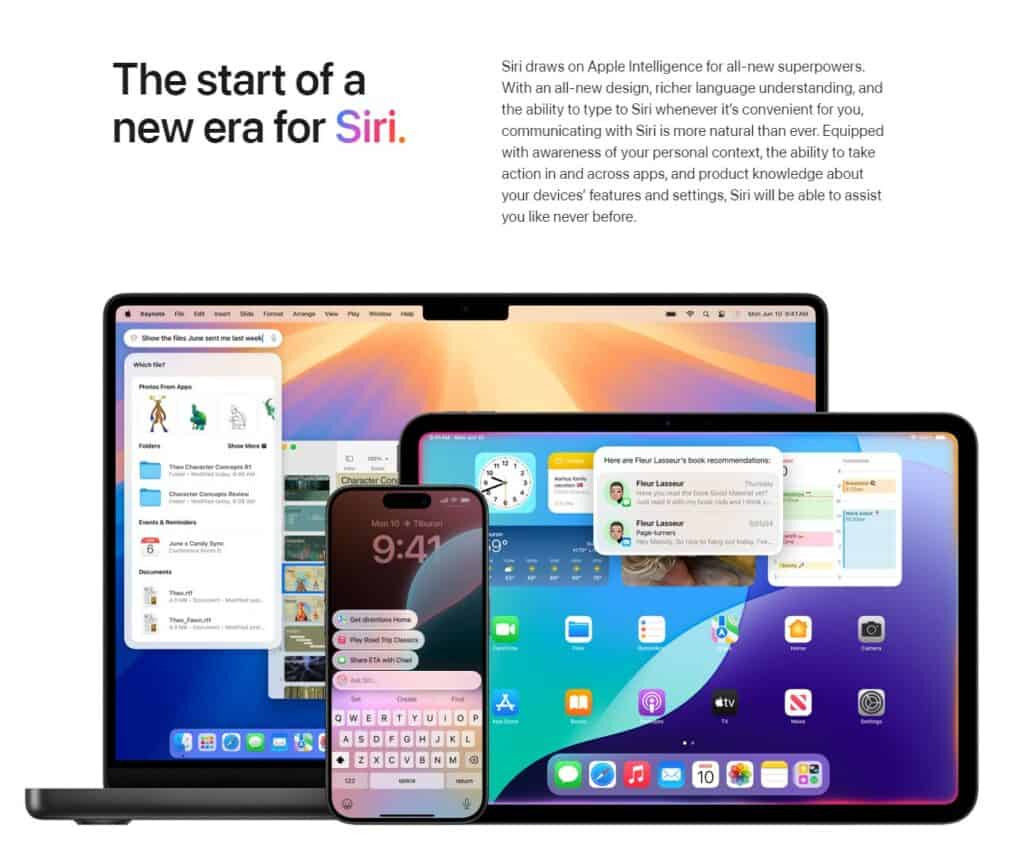Here are five reasons why Apple doesn’t need AI as they announce ChatGPT integration

Table of Contents
In the past few months, rumors and leaks have been circulating, claiming that Apple has plans to introduce AI features in the upcoming iOS 18 update. Some pointed towards custom AI-generated emojis and merging ChatGPT with Siri, while others discussed an AI-powered Siri that could help users complete tasks quickly. During the Worldwide Developers Conference, many of these rumors turned out to be true as Apple announced its partnership with OpenAI and introduced Apple Intelligence.
The main aim of this partnership is to improve the experience of Apple users. However, while this move may help Apple reassure nervous investors who were worried about the company not joining the AI race – with competitors already integrating such features – it also raises potential concerns. I personally believe that the integration of OpenAI’s ChatGPT technology could pose a threat to the simplicity, performance, privacy, and cost of the devices.
Complex AI features could ruin the simplicity
One of Apple’s biggest strengths lies in its user interface. The company has built a reputation for clean design and easy functionality, making its products suitable for both tech-savvy individuals and casual users. I have personally been using an iPhone since the iPhone 5 was released, and I’ve never thought about switching to something else. The reason? It’s the simplicity. I have always found Apple’s interface to be simple and user-friendly, which is why I’ve never considered switching to another brand.

However, it is important to keep in mind that complex AI features often come with additional menus, settings, and options. Therefore, integrating ChatGPT and other AI features into Apple devices could clutter the interface and frustrate users who simply want to perform basic tasks. In short, Apple will be putting simplicity at risk, something it takes pride in.
Users could face performance issues
Adding complex AI features can introduce potential performance issues. AI features require significant processing power from the CPU and GPU. While simple features may not take a toll on the processor, more complex ones could cause slowdowns, lags, and glitches. Apple plans to release the AI features only on the latest models, as they come with powerful hardware capable of handling such features.
However, as AI features are upgraded in the future, they will require more power. This will not only put a burden on the older devices but also increase the cost of new ones, as Apple will need to introduce even better hardware to support these advancements.
The AI features are not for everyone
While some users might be eager to try out AI assistants and features, others, like myself, might prefer things exactly how they are right now. Not everyone wants to see or use AI in their daily activities, which is why a significant portion of the user base may view these new AI features as unnecessary. For example, I primarily use my iPhone for photography. If an AI-powered camera app starts suggesting filters and edits while I’m just trying to take a quick picture on the go, it would bother me. Similarly, I wouldn’t want AI to assist me when I’m trying to find a certain location on maps or performing any other basic task.
However, this problem could be solved if Apple decides to introduce an option that allows users to opt in or out of AI features, giving them control over the type of features they want to see on their devices.
There could be privacy concerns
Apple has always prioritized privacy and security. The company has never allowed its users to download applications outside of the App Store, and it even introduced its own Safari browser for the same security reasons. So, for a company known for its tightly controlled system, where services are developed in-house and no outside technologies are typically used, it is surprising to see them integrating OpenAI’s ChatGPT technology into their devices.
By integrating external technology, Apple is changing the way users’ data is handled. This is especially concerning with AI, which often relies on vast amounts of data for training and operation. Once the technology has been integrated, things might not remain the same as before. I personally believe that Apple will face severe backlash from users who have always stuck with Apple due to its solid security.
We could see an increase in the price
Many AI features rely on powerful processors and specialized hardware, which are more expensive to manufacture than traditional smartphone components. As discussed earlier, Apple is planning to introduce AI features only in the latest iPhones, including the iPhone 15 Pro and iPhone 15 Pro Max. These two models boast 8GB of RAM and the powerful A17 Pro chip. While Apple hasn’t shared the reason why previous models aren’t getting the AI features, it could be because they don’t have enough power to support them. Because of this, I fear the prices of the next iPhones will be a bit higher. Apple will have to use better processors and hardware in them, leading to an increase in the price of the devices.
